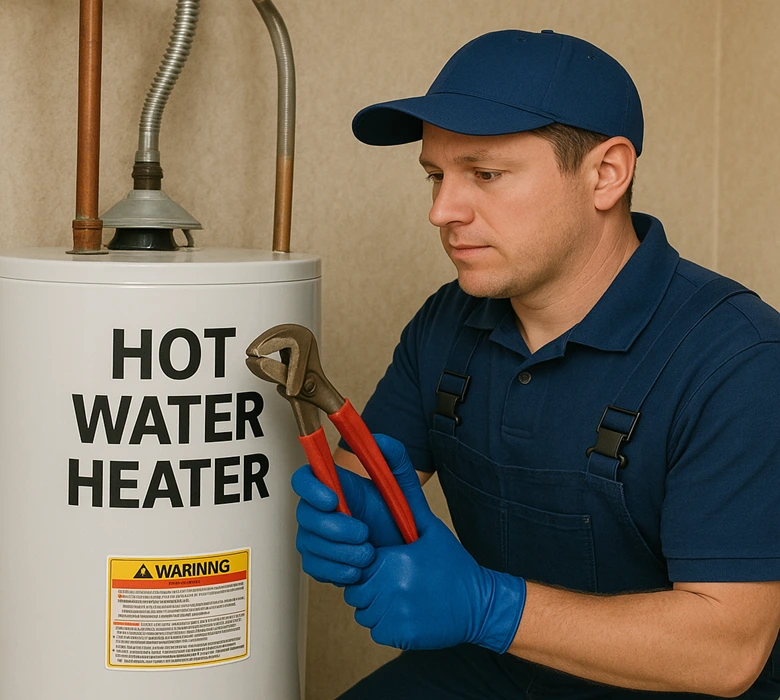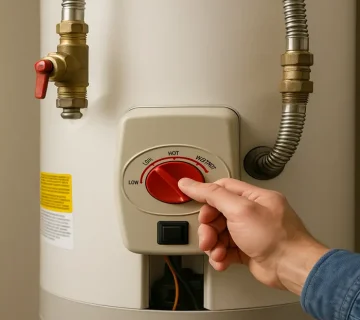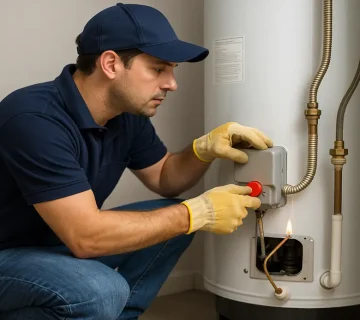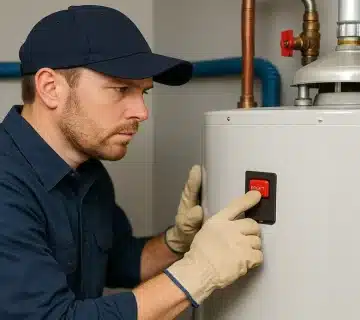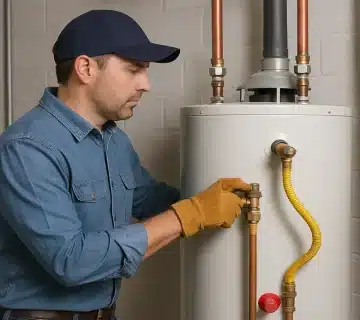A hot water heater is one of the most essential appliances in your home. It ensures you have warm water for bathing, cleaning, and other daily activities. Like any appliance, it requires proper care and maintenance to keep running efficiently. Neglecting your water heater can lead to higher utility bills, unexpected breakdowns, and even costly replacements.
In this guide, we’ll explore 7 powerful tips to keep your hot water heater working reliably for years.
1. Hot Water Heater Regular Maintenance
Routine maintenance is the most effective way to extend the lifespan of your hot water heater. Schedule a professional inspection once a year to check for leaks, corrosion, or worn-out parts. A trained technician can identify early signs of trouble before they become expensive problems.
For homeowners who prefer a DIY approach, you can:
- Check for water pooling around the base.
- Inspect the anode rod for corrosion.
- Listen for unusual noises such as popping or banging.
2. Flush Your Hot Water Heater Tank
Sediment buildup is a common cause of poor performance in tank-style hot water heaters. Minerals from your water supply settle at the bottom of the tank, reducing efficiency and causing the heater to work harder.
Flushing your tank once or twice a year removes sediment and helps maintain efficiency. Here’s a quick outline:
- Turn off the power and water supply.
- Attach a garden hose to the drain valve.
- Let the water drain completely before refilling the tank.
3. Check and Replace the Anode Rod
The anode rod in your hot water heater protects the tank from rust and corrosion by attracting minerals that would otherwise damage the tank lining. Over time, the rod deteriorates and needs replacement—typically every 3–5 years.
A worn-out anode rod can lead to tank corrosion and leaks. If you’re unsure about the rod’s condition, have it inspected by a professional during your annual service.
4. Adjust the Temperature Settings
Many homeowners set their hot water heater to higher temperatures than necessary. This not only increases energy consumption but can also cause premature wear.
For most households, a temperature of 120°F (49°C) is ideal. It’s hot enough to meet your needs but safe enough to prevent scalding and reduce energy costs.
5. Insulate Your Hot Water Heater and Pipes
Heat loss from your hot water heater and connected pipes can increase your energy bills. Wrapping your tank with an insulating blanket and insulating exposed hot water pipes helps retain heat.
This is especially important in colder climates where heat loss is greater. Insulation can improve efficiency by up to 10–15%, saving you money in the long run.
6. Test the Pressure Relief Valve
The pressure relief valve is a critical safety feature of your hot water heater. It releases excess pressure if the tank becomes too hot or pressurized, preventing dangerous explosions.
Test the valve by lifting the lever and letting it snap back. If water doesn’t flow freely or the valve leaks afterward, it’s time to replace it.
7. Know When to Replace Your Hot Water Heater
Even with proper maintenance, every hot water heater has a lifespan—typically 8–12 years for tank models and up to 20 years for tankless systems. If your unit frequently needs repairs, produces rusty water, or fails to meet your hot water demands, it may be time for a replacement.
Upgrading to a modern, energy-efficient model can save you money, improve performance, and increase home comfort.
Final Thoughts on Hot Water Heater Care
Caring for your hot water heater doesn’t have to be complicated. By following these seven tips, you can extend its lifespan, maintain efficiency, and avoid unexpected breakdowns.
For expert service, inspections, and replacements in Houston, trust Value Water Heaters—your local specialists in water heater repair and installation. You can also find more reviews and information about our services on Yelp and Yahoo Local.

